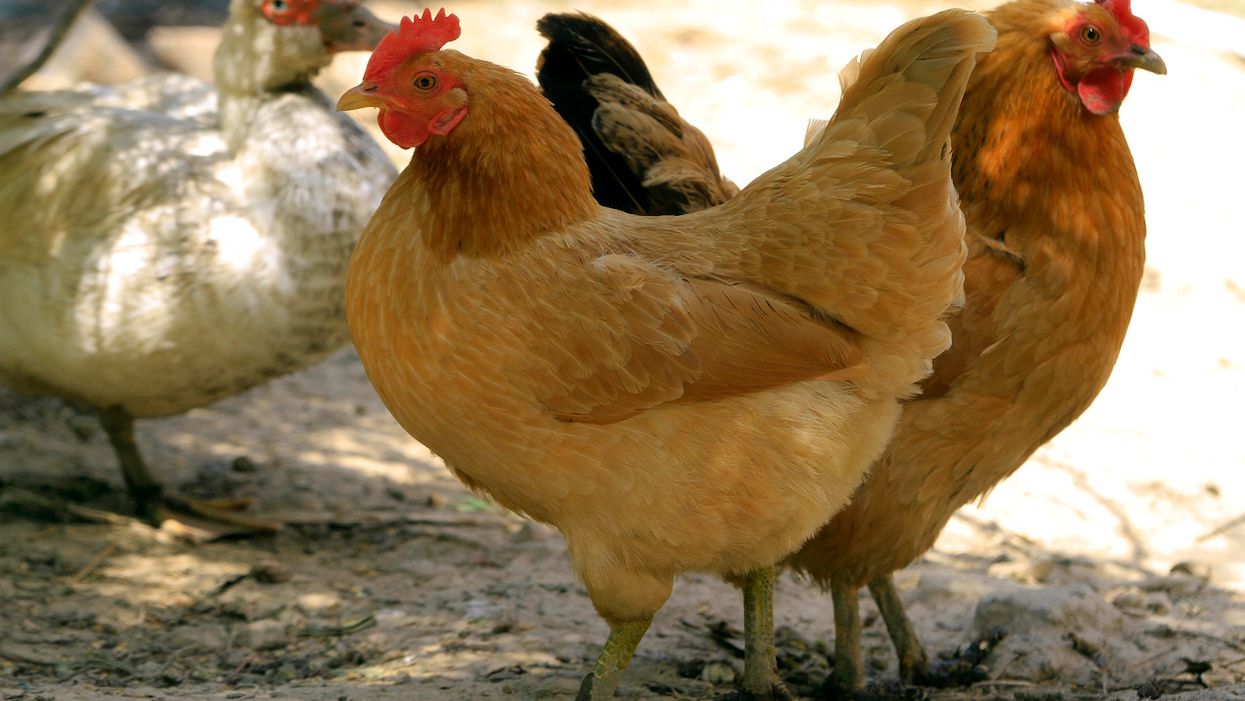
AFP/Getty Images

Researchers have developed a cost-effective method to produce human proteins that could be used for therapies
Genetically modified chickens may provide a cost-effective way to produce human proteins that could be used for anti-cancer and anti-viral drugs, according to research recently published in the journal BMC Biotechnology.
British researchers from the University of Edinburgh's Roslin Institute altered the DNA of chickens to produce eggs that contained certain proteins that could be extracted from the white of the eggs to develop immune therapies.
The drugs made from the extracted proteins were found to be as effective as those made from existing sources.
"We are excited to develop this technology to its full potential, not just for human therapeutics in the future but also in the fields of research and animal health," researcher Lissa Herron said.
The chickens showed no harmful effects from the DNA injected in them.
One is the human protein IFNalpha2a, which has powerful anti-cancer and anti-viral effects.
Human and pig versions of macrophage-CSF stimulates damaged tissues to repair themselves, according to a University of Edinbugh news release.
"[P]rotein-based therapeutics have been the fastest-growing segment of the pharmaceutical industry," according to the study's authors.
Chickens are relatively inexpensive to care for and have the capability of laying as many as 300 eggs each year.
The eggs can provide large amounts of the proteins, which can be extracted to produce the drugs.
Other forms of producing large quantities of protein-based drugs to treat cancer and other diseases require mammalian cell culture techniques, which are expensive and provides very low quantities.
The researchers noted that their method was not only less expensive but yields a greater volume of proteins that holds promise for more affordable treatments in the future.
"We are not yet producing medicines for people, but this study shows that chickens are commercially viable for producing proteins suitable for drug discovery studies and other applications in biotechnology," said Helen Sang, one of the study's authors.